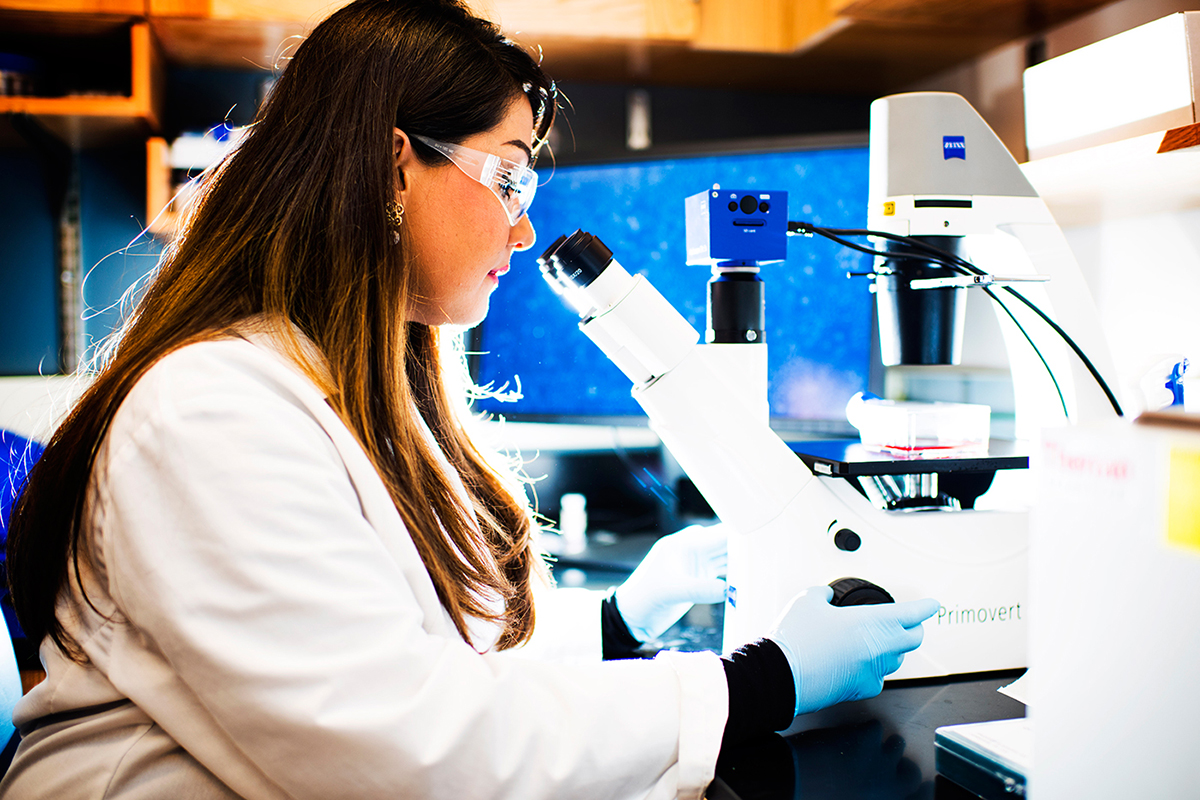Surgical Super Glue May Revolutionize Post-Op Recovery

Nasim Annabi/Photo by Adam Glanzman/Northeastern University
When Northeastern University’s Nasim Annabi has a great idea, she sticks with it.
Annabi, an assistant professor of chemical engineering at Northeastern, created a powerful, sprayable surgical glue that could someday not only replace unwieldy sutures and staples, but also help damaged organs heal. “This isn’t just a sealant, it actually helps with tissue regeneration,” Annabi told News @ Northeastern.
The glue, called MeTro, is made from a human protein and, when activated by UV light, seals wounds on the heart, lungs, or other internal organs in seconds. Crucially, it remains supple and flexible after reaching its target, allowing it to move and bend with the organ as tissue grows and heals. Once the organ is back to full strength, the gel even degrades by itself, obviating the need for follow-up surgeries.
In a new study published in Science Translational Medicine, Annabi and her team show that MeTro, when used on rats and pigs, offers a safe, effective, and temporary post-surgical solution. “The engineered MeTro sealant has high potential for clinical applications because of superior adhesion and mechanical properties compared to commercially available sealants,” the paper says.
Assuming MeTro passes the bar of human clinical trials, Annabi says it could be used in hospital operating rooms within three to five years.

